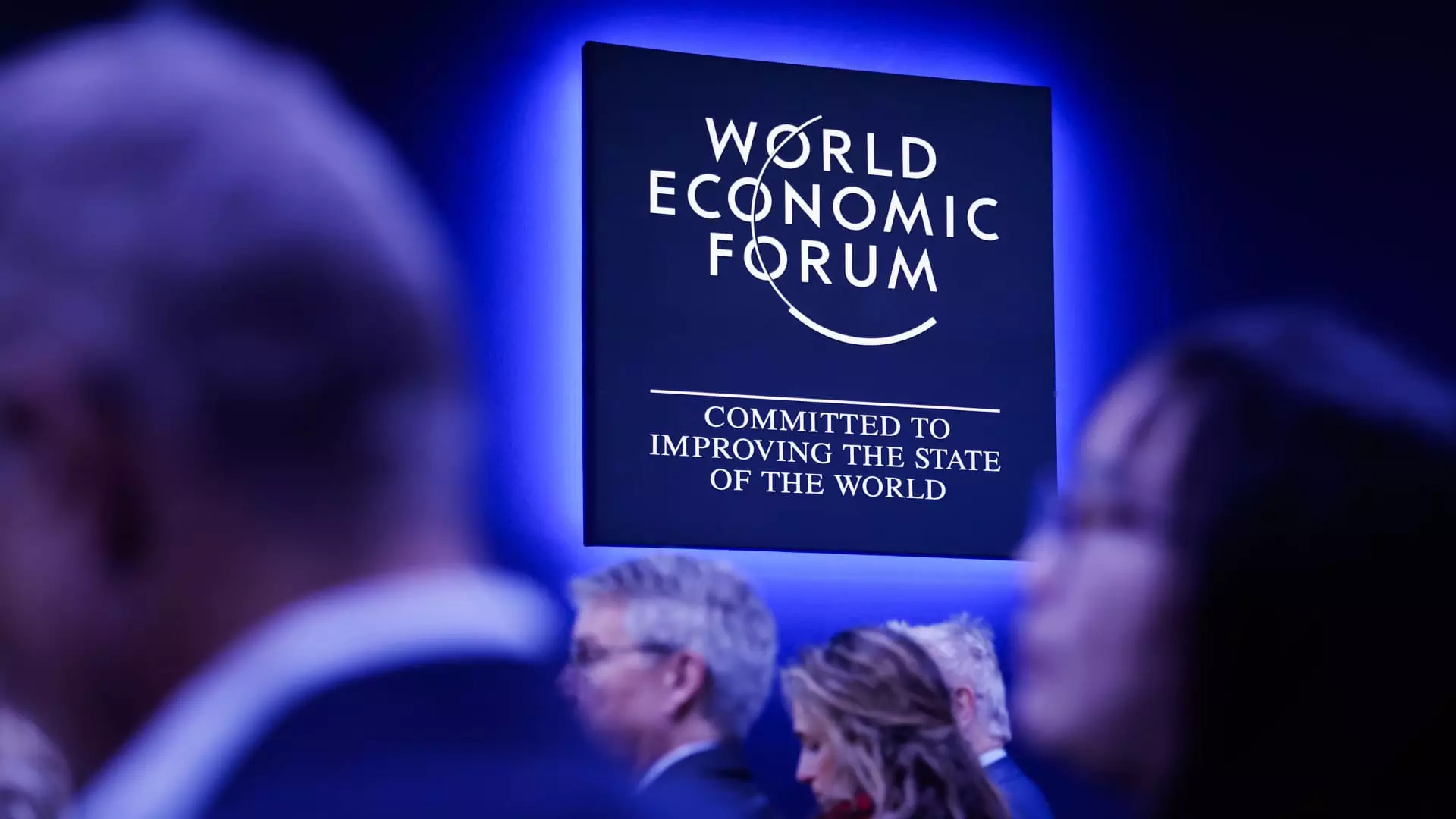The World Economic Forum (WEF) in Davos, Switzerland, has long been a hotspot for pivotal discussions among political leaders and business magnates. The recurring themes that resonate through the halls of this esteemed event have evolved over time, but in the latest gathering, three buzzwords have captured the spotlight: diversity, equity, and inclusion (DEI). With the political and corporate landscapes facing heightened scrutiny, the discourse surrounding DEI is not just a matter of social responsibility; it is intensively interwoven with the fabric of governance and market operations. At the forefront are opposing viewpoints regarding the future of DEI initiatives in the wake of the recent rhetorical shift from high-profile figures, including former President Donald Trump, who has vocally criticized these principles.
In a stark declaration during a virtual appearance at the WEF, Trump emphasized his administration’s commitment to dismantling what he termed “discriminatory diversity, equity, and inclusion nonsense.” His executive order signed on the first day in office targeted federal diversity initiatives, establishing a distinctly meritocratic vision for the workforce that resonated with some constituencies across the United States. This move underscores a prevailing tension in the realm of public policy where DEI is seen not merely as an ethical stance, but one that potentially polarizes public opinion. The implications of these political U-turns are profound, not only for government institutions but also for private entities that often look to governmental standards as a guideline for their policies.
Despite criticisms from the political sphere, corporate leaders at Davos largely remain committed to DEI. Executives expressed a collective understanding that while the verbiage and frameworks might undergo transformations in response to shifting political winds, the core values of their organizations remain steadfast. Many of these leaders articulated a strong belief that diversity enriches their company culture and ultimately enhances performance. In one prominent statement, a CEO from Nasdaq articulated that creating environments where individuals can authentically represent themselves leads to improved productivity. This emphasis on authentic representation challenges the notion that DEI initiatives are expendable in the face of changing political climates.
The economic advantages of diversity are evidenced by a wealth of research indicating that inclusive teams yield more innovative solutions and greater overall productivity. Several leaders reiterated the measurable benefits of robust DEI practices. For instance, companies with diverse teams are statistically shown to outperform their peers. A sentiment shared by many involved in high-stakes industries is that diverse perspectives are not just a social bonus; they are a fundamental driver of competitive advantage. As organizations navigate complex market dynamics—compounded by the rapid advancement of technologies such as artificial intelligence—the ability to draw upon a broad spectrum of experiences becomes increasingly essential.
Nonetheless, this debate is not without its critiques. Some executives have pointed out that certain flawed initiatives under the DEI umbrella have undermined the entire discourse, fostering resistance to what had once been largely accepted principles. There is an acknowledgment that while diversity is crucial, the methods through which organizations implement DEI initiatives require scrutiny and potentially recalibration. The conversation now turns to how to practically manifest DEI values in ways that resonate positively within diverse communities and align with organizational goals.
As leaders at Davos reflect on the future of DEI in both governmental and corporate settings, it is essential to reconcile these competing narratives. There is a clear realization that moving forward, the focus should be on case studies of successful DEI initiatives that exemplify best practices rather than adhering to buzzwords that may fall in and out of favor. The goal remains to create sustainable pathways through which organizations can foster inclusivity—because beyond the rhetoric lies the responsibility to innovate and lead effectively.
The discussions taking place at Davos signal a critical juncture in how diversity, equity, and inclusion are perceived and operationalized. For politicians and companies alike, the challenge is to engage meaningfully with these concepts rather than merely reacting to political pressures. As stakeholders continue to redefine what it means to be inclusive, a balanced approach—one that harmonizes ethical imperatives with business needs—will ultimately determine the success of DEI in shaping our economic future. The road ahead demands a commitment to not only uphold the values of diversity and inclusion but also to refine the approaches that carry those values into actionable strategies.


Leave a Reply